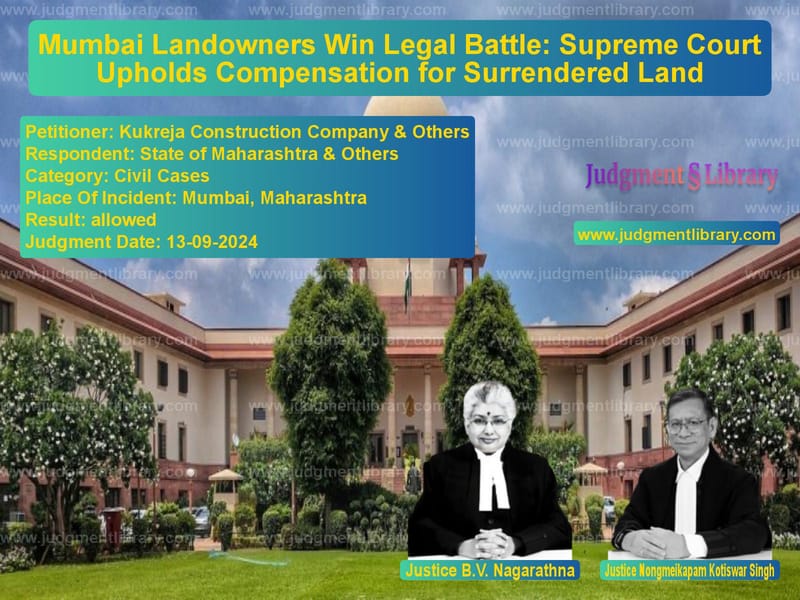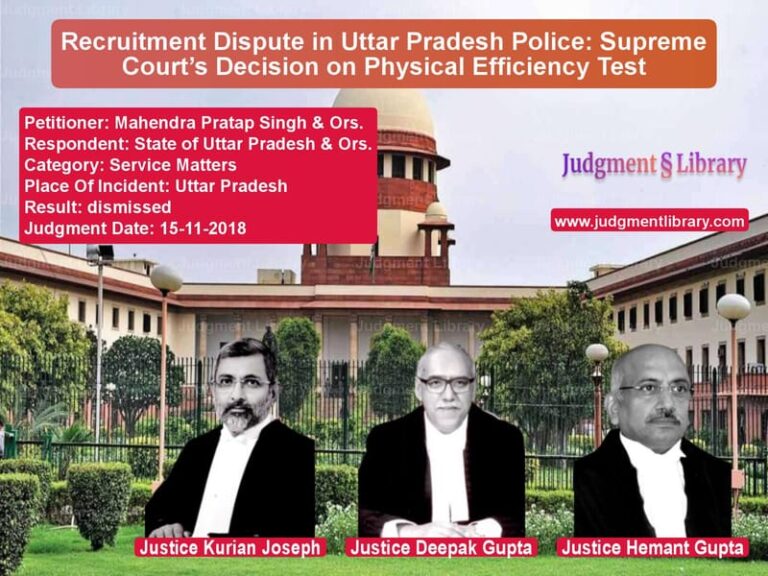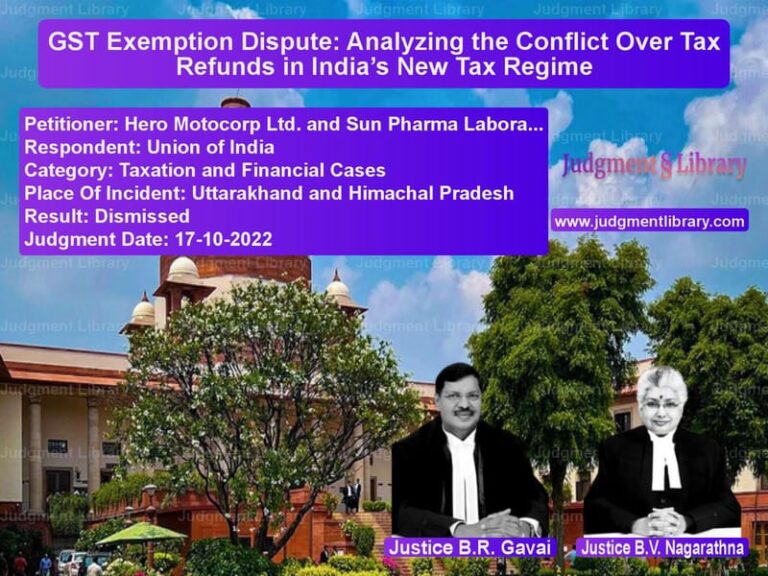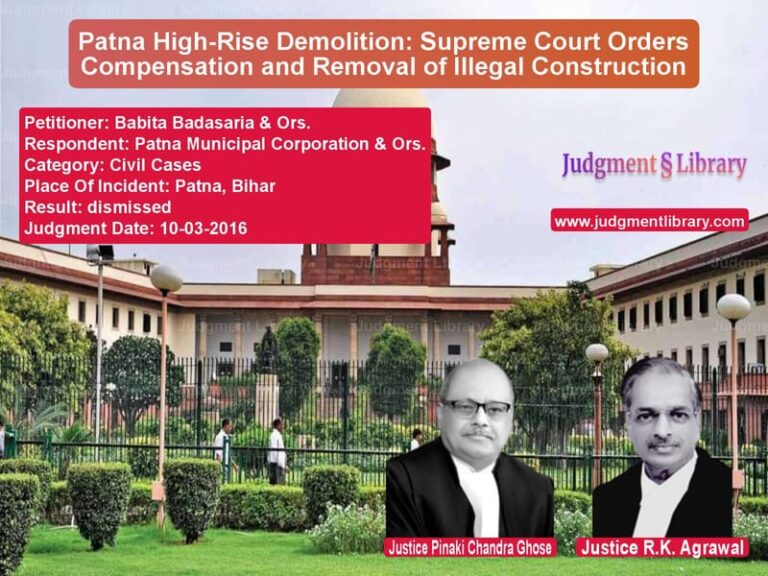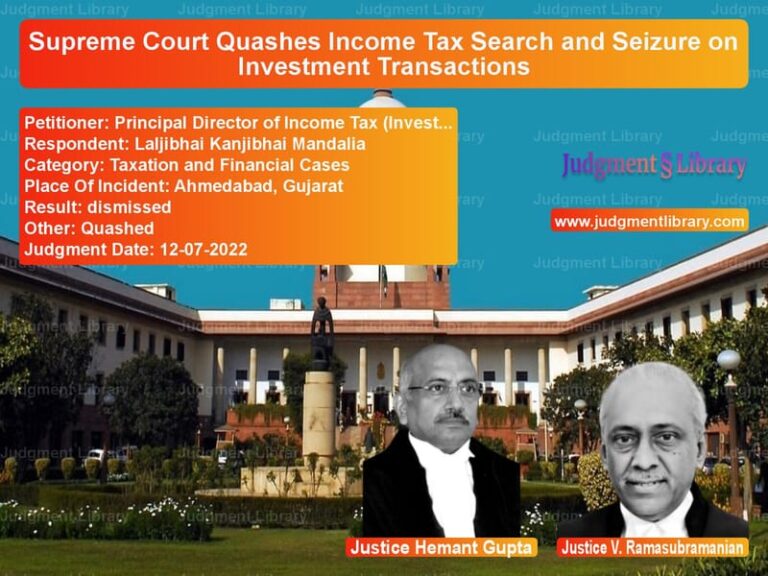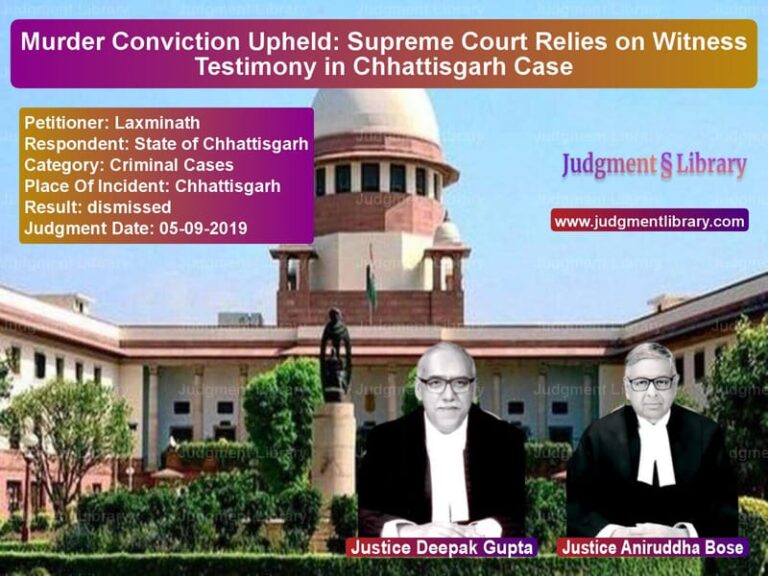Mumbai Landowners Win Legal Battle: Supreme Court Upholds Compensation for Surrendered Land
The case of Kukreja Construction Company & Others vs. State of Maharashtra & Others revolved around a long-standing dispute over compensation in the form of Transferable Development Rights (TDR) and Floor Space Index (FSI) granted to landowners who surrendered land for public amenities. The Supreme Court ruled in favor of the landowners, setting a crucial precedent for property rights and urban development compensation.
Background of the Case
The appellants, Kukreja Construction Company and other landowners, voluntarily surrendered land to the Municipal Corporation of Greater Mumbai (MCGM) for the development of Development Plan (DP) roads. Under the provisions of the Maharashtra Regional and Town Planning Act, 1966 (MRTP Act), they were entitled to compensation in the form of TDR and FSI.
However, the dispute arose when the MCGM refused to grant 100% TDR for the development of public amenities on the surrendered land, despite a previous Supreme Court ruling in Godrej & Boyce Manufacturing Co. Ltd. vs. State of Maharashtra (2009) 5 SCC 24 (“Godrej & Boyce I”). The case was further complicated by amendments to the Development Control Regulations (DCR) that sought to limit the extent of TDR granted.
Legal Dispute and High Court Rulings
Landowners’ Arguments
- The appellants contended that they were entitled to TDR equivalent to the land area surrendered, as well as additional TDR for developing public amenities such as DP roads.
- They relied on the Supreme Court ruling in Godrej & Boyce I, which held that landowners should receive 100% TDR for developing public amenities.
- They argued that subsequent amendments to the DCR in 2010 and 2016 could not be applied retroactively to deny them compensation.
MCGM’s Arguments
- MCGM argued that the landowners had already received partial compensation and were not entitled to additional TDR.
- It contended that the amendments to the DCR limited TDR grants to 25% of the developed area and should apply to pending cases.
- MCGM claimed that some of the landowners had delayed their claims, making them ineligible due to laches and abandonment.
High Court Decision
The Bombay High Court ruled in favor of some landowners while dismissing other claims due to delay and laches. Several petitioners challenged the High Court’s decision before the Supreme Court.
Supreme Court’s Judgment
1. Recognition of Landowners’ Rights
The Supreme Court reaffirmed its previous decision in Godrej & Boyce I and ruled that the landowners were entitled to 100% TDR for the developed amenities.
“The right to receive compensation for acquisition is a vested right and a constitutional right and the same cannot be taken away by an amendment to the statute.”
2. Invalidity of MCGM’s Arguments
The Court rejected MCGM’s claim that the landowners had abandoned their claims due to delay. It ruled that compensation cannot be denied on procedural grounds.
“Delay and laches cannot be raised in a case of a continuing cause of action, or if the circumstances shock the judicial conscience of the Court.”
3. No Retroactive Application of Amendments
The Court held that the 2010 and 2016 amendments to the DCR could not be applied retroactively to deny TDR to landowners who had surrendered their land before these amendments.
“The notification dated 16th November 2016 is legal and valid. However, the said notification will not have retrospective or retroactive application.”
4. Order for Immediate Compliance
The Court directed MCGM to grant the pending TDR within three months to the eligible landowners.
“The appellants-employer are directed to comply with the order passed by the Industrial Court, and later affirmed by the High Court, within a period of eight weeks.”
Impact of the Judgment
The ruling has significant implications for urban development and property rights in Mumbai:
- Protecting Landowners’ Rights: The judgment reinforces that land surrendered for public use must be fairly compensated.
- Clarity on TDR Entitlement: It confirms that 100% TDR should be granted for developing amenities, setting a precedent for future disputes.
- Limits on Retroactive Policy Changes: The Court’s decision prevents authorities from using policy amendments to deny past entitlements.
- Acceleration of Compensation: The ruling ensures that pending TDR claims must be processed within a fixed timeframe.
This Supreme Court judgment is a landmark victory for property owners in Mumbai, affirming their rights to fair compensation and setting a crucial precedent for future urban development cases.
Petitioner Name: Kukreja Construction Company & Others.Respondent Name: State of Maharashtra & Others.Judgment By: Justice B.V. Nagarathna, Justice Nongmeikapam Kotiswar Singh.Place Of Incident: Mumbai, Maharashtra.Judgment Date: 13-09-2024.
Don’t miss out on the full details! Download the complete judgment in PDF format below and gain valuable insights instantly!
Download Judgment: kukreja-construction-vs-state-of-maharashtra-supreme-court-of-india-judgment-dated-13-09-2024.pdf
Directly Download Judgment: Directly download this Judgment
See all petitions in Property Disputes
See all petitions in Damages and Compensation
See all petitions in Judgment by B.V. Nagarathna
See all petitions in Judgment by N. Kotiswar Singh
See all petitions in allowed
See all petitions in supreme court of India judgments September 2024
See all petitions in 2024 judgments
See all posts in Civil Cases Category
See all allowed petitions in Civil Cases Category
See all Dismissed petitions in Civil Cases Category
See all partially allowed petitions in Civil Cases Category

